Top 12 Portuguese Culture, Customs and Etiquette
Should you remove your shoes when visiting friends? Should you greet those on elevators with a smile? When thinking about the dos and don'ts in your own ... read more...nation, these questions might not seem like the most obvious ones, but things that you might not even consider at home can have a major impact abroad. Here is a list of Portuguese Culture, Customs and Etiquette.
-
Traditional dances are very well-liked and convey a significant portion of the essence of the nation's many areas from the north to the south. One of the most well-known is the Pauliteiros de Miranda dance, which is performed by eight men from Terras de Miranda. They dance while acting out significant local historical events to the accompaniment of castanets, drums, and other local instruments. They dance with two sticks (palos) and wear an embroidered kilt, a linen shirt, a brown vest, leather boots, woolen socks, and headgear.
The Caretos de Podence, traditional figures from the Northeast Trás-os-Montes and Alto Douro region that date back to the days of the Celts in pre-Roman times, perform another well-known dance. The males dress in garishly colored fringed patchwork suits and wear red, yellow, green, or black masks made of leather, wood, or tin during Carnival. Additionally, they have a belt around their waists made of cow bells, which gives out the distinctive Caretos sound.
Other dances include the Vira from the Minho region, the Bailinho from Madeira, the Corridinho from the Algarve, the Fandango from Ribatejo, the Vira from Nazaré, the Chula from the Douro, the traditional Moda das Saias from various regions, the Bailarico Saloio, the Farrapeira, and the Tirana dances.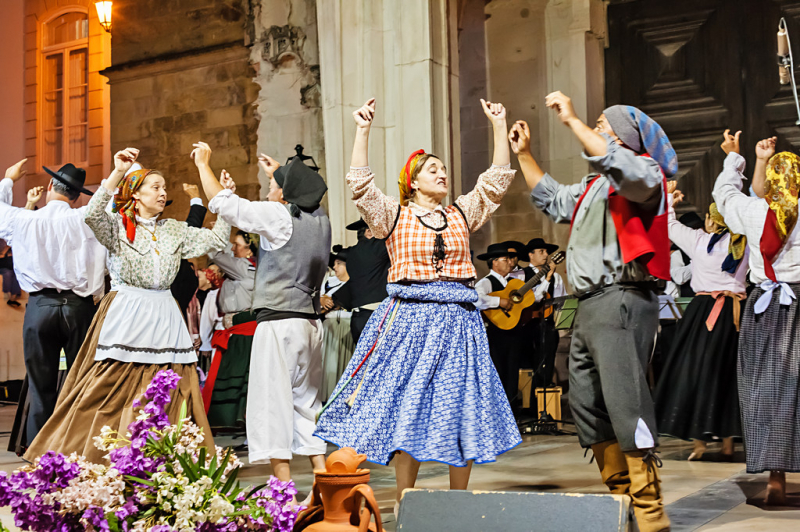
https://theculturetrip.com/ 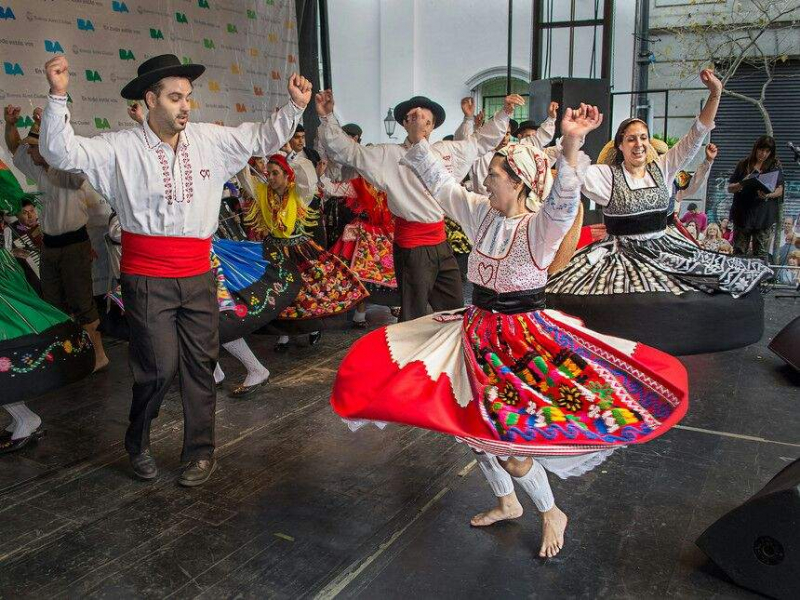
https://aminoapps.com/ -
In Portugal, giving gifts is important. Gifts are not bribes; they are a symbol of respect. Businesses frequently give gifts, typically in the form of gift baskets, to their clients and business partners in a professional setting. Spirits, whiskey, Port wine, and coffee table novels are frequent gift options. Christmas is a time when this happens frequently. It is customary to express gratitude for gifts received, and a second message of appreciation is always appreciated.
Bring flowers, fine chocolates, or candies for the hostess when you are invited to a Portuguese home for supper. If you don't know the wines your hosts like, don't bring any wine. Additionally, count how many flowers you bring; 13 is a bad amount.
Don't present your host with crimson flowers. One reader from Portugal who reads Expatica offers the suggestion to save these flowers for your lover or companion. It is appropriate to send the hostess a follow-up invitation.
Remember that opening a present when you receive it is considered polite in Portuguese culture. Normally, gifts are not exchanged at business meetings, however small gifts could be appropriate following a successful negotiation.
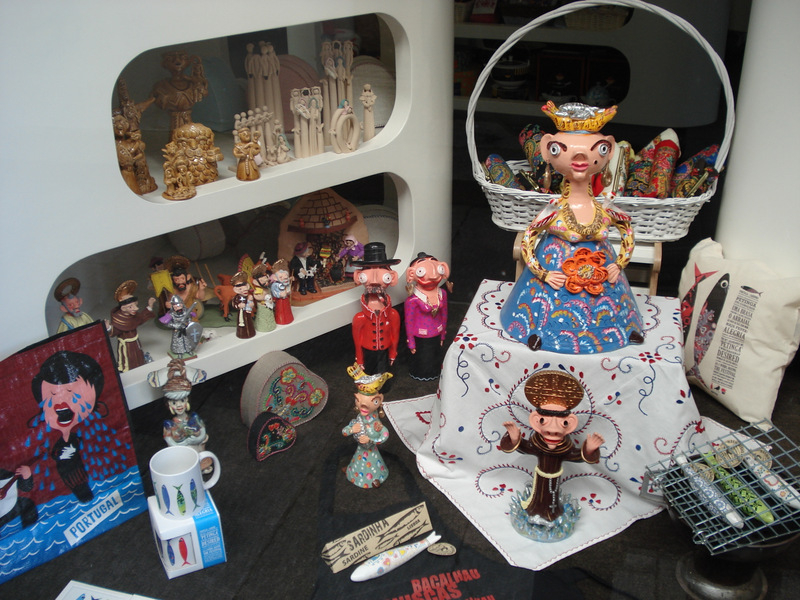
https://ecotrilha.pt 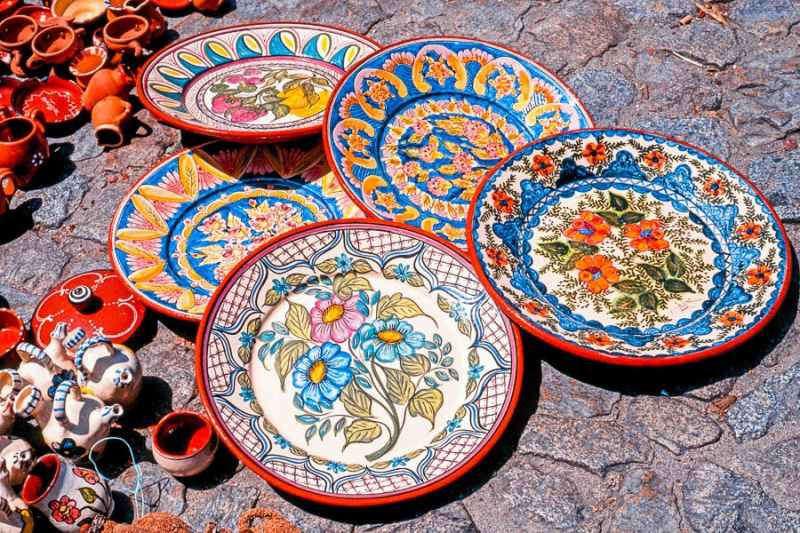
https://wander-lush.org/ -
The Portuguese prefer to conduct business with people they feel at ease with, which is to say, people they are confident in. Therefore, it is suggested that the initial introduction be made by a mutual contact. Be prepared to spend a lot of time cultivating the relationship. Face-to-face interactions are preferred by the Portuguese over written or telephone contact, which is viewed as being overly impersonal.
Once discussions have begun, the relationship-building process must start over if you switch representatives or team members. It's crucial that you respect your coworkers in the workplace and avoid putting them in a bad light. Formal communication is conducted according to precise protocol.During a presentation, your Portuguese business associates will wait until you are done speaking before asking questions or seeking clarification. Even if they are truthful, Portuguese people prefer to keep quiet when it is in their best interests to do so. The Portuguese can be expressive while welcoming friends, despite not using hand gestures or passionate speech.
You might want to restrict your behavior if you frequently make hand gestures while speaking because it could be mistakenly interpreted as being excessively demonstrative. Portugal has a hierarchical culture that honors rank and age. Respect people in positions of authority and keep written communications official.
If your Portuguese colleagues break their promises, do not be alarmed. Compared to people from many other cultures, they have a more relaxed attitude toward time and do not place as much importance on deadlines. Even if you believe it to be justified, they do not welcome forthright criticism.
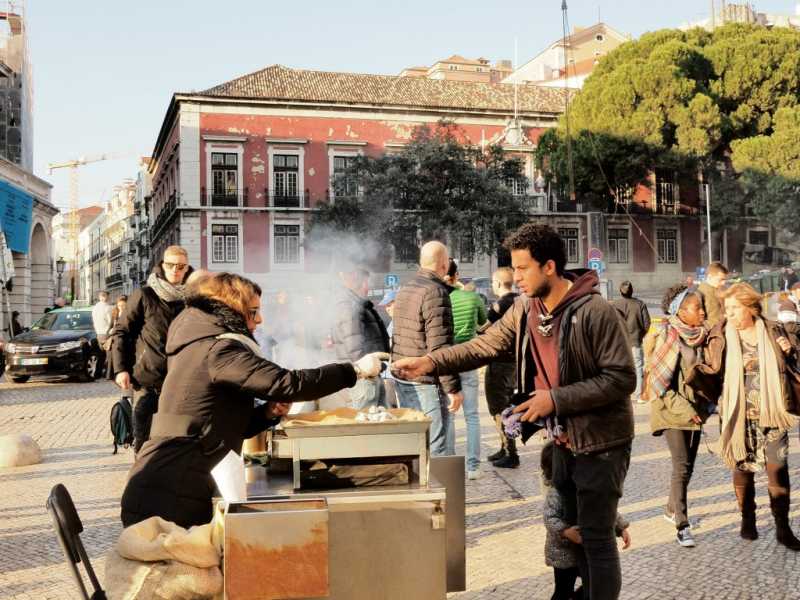
https://hortensetravel.com/ 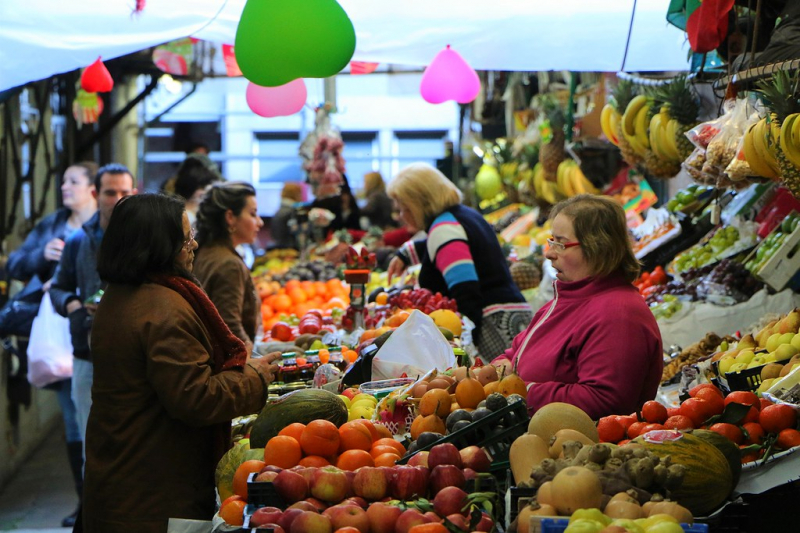
https://foodlovertour.com -
One of the most significant aspects of social protocol in Portugal is the use of greetings. Stick to pleasantries if you're going to focus on just one item. In Portugal, greetings are strongly gendered. Men shake hands to greet one another. They might shake hands with a pat on the back that feels like a half hug if they are close friends. If they are related, they might also give each other a kiss on each cheek twice. The dynamics of a specific family will determine this.
Women give two kisses as they meet males and other women. The right cheek receives the first kiss, followed by the left. But in a work environment, it's normal for women to shake hands. But things can become a little complex. Some locals in some parts of Lisbon only give one cheek kiss. If you don't find out who of your buddies does this, you'll be left in an awkward situation. Many contend that in Portugal, persons who give one kiss are seen as "posh."
Strangers rarely say hello to one another in passing in large cities, but this can vary by neighborhood. It is typical for tiny settlements to do this. Depending on the time of day, use bom dia (good morning), boa tarde (good afternoon), or boa noite (good night). If you run into a neighbor outside your home or in an elevator, say these pleasantries.
https://bestlisbonweather.blogspot.com 
https://www.portuguesepedia.com/ -
You should wear anything you choose with regard to the Portuguese dress code. Regardless of whether you are a resident or just visiting Portugal, you should express yourself anyway you choose. Let's take a look at Portugal's clothing code, though, if you're interested. It is well known that Portuguese people associate high status with fashionable attire.
Even though many people cannot afford luxury clothing, they nonetheless buy it. But this may not always be true for expensive labels like Louis Vuitton or Gucci. If such shows of wealth are not covert, they are frequently frowned upon. This does not exclude you from owning a high-end purse, but items like a Versace coat covered in the brand's name are viewed as garish.
Portuguese people dress elegantly but comfortably. Although they are fairly common, jeans are typically classy and refined. In the summer, both men's and women's shirts are common, particularly those made of linen. Dresses are also worn all year round, however summer is the best time to wear them. Sneakers are worn by people of all ages, though they are typically maintained and kept clean.
People frequently dress up, and males frequently don suits to work (usually without a tie). Weddings, graduations, and black-tie events are typical occasions to wear heels. Women who wear "revealing attire" are frequently criticized, especially by the elder generation. Younger ladies, meanwhile, typically wear anything they choose. Regardless of your age, we advise you to follow suit!
American women frequently ask whether leggings are worn in Portugal on Facebook groups. Early in the decade they were more prevalent, but lately they are not seen as "chic." But once more, wear whatever is most comfortable for you!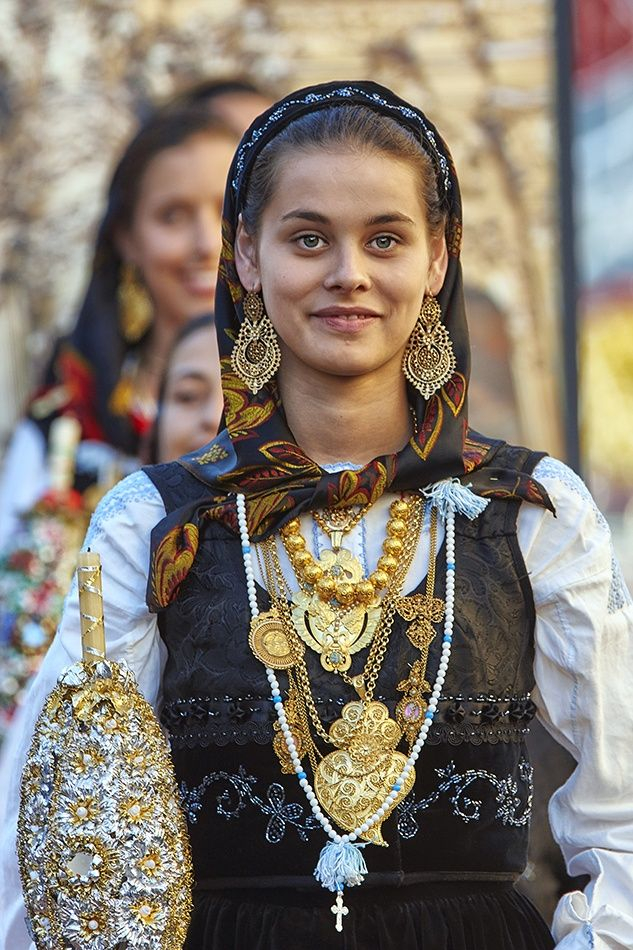
https://www.pinterest.com/ 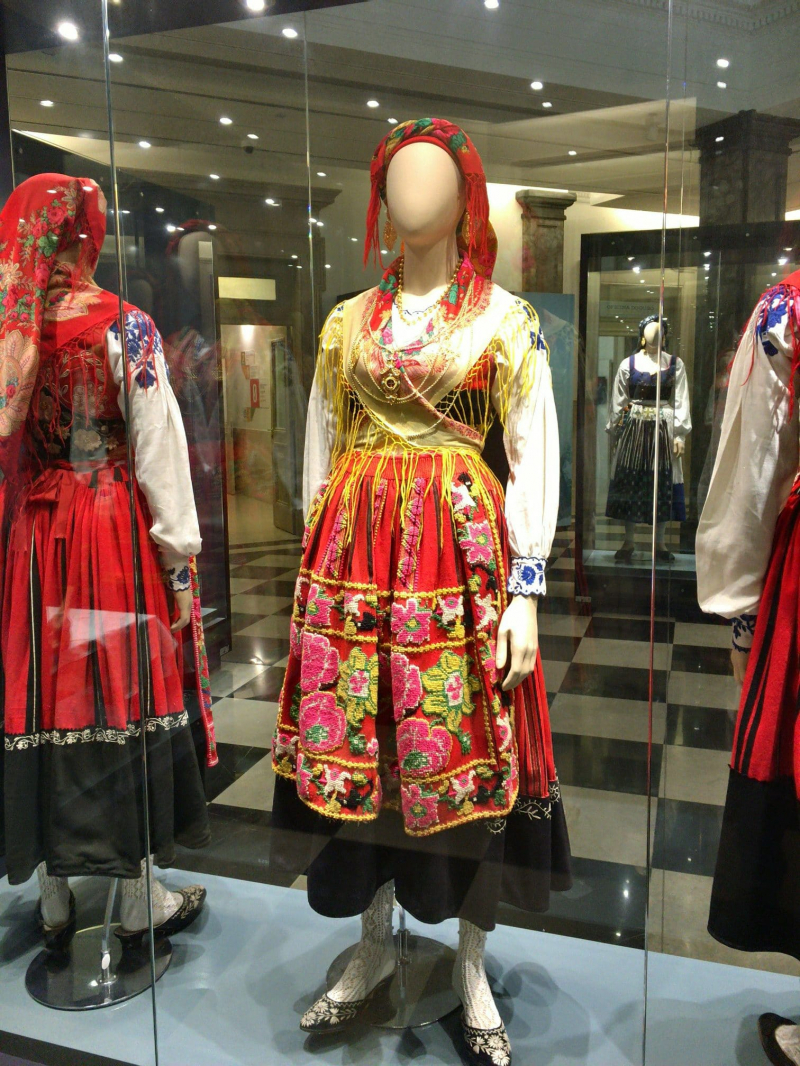
https://www.clbxg.com/ -
For visitors to Portugal for the first time, dining etiquette can be a little intimidating, but you will quickly pick it up. If you are having dinner at someone's home, the host normally chooses where everyone sits. As soon as everyone has been served, you can begin eating. In order to let everyone know that they can begin eating, the host frequently says "bom proveito" or "bom apetite."
When it comes to utensils, things become a little perplexing. The fork is held in the left hand while the knife is in the right. To eat with only a fork is considered impolite. Dessert is served with the smaller fork and spoon above your dish. When finished, place the knife and fork on the plate parallel to one another. This lets your host or waiter know that you're done. You can place your cutlery on either side of the plate if you haven't finished. This will prevent a waiter from taking your plate.
While dipping bread in sauce is enjoyable, it is impolite to do so in more formal circumstances. With your fork, dip a piece of bread you've cut with your hands into a sauce. When eating, napkins are typically placed on your lap, especially if they are made of cotton. When you are finished eating, fold the napkin before setting it on the table. In Portugal, who foots the bill? It varies, but especially for those over 40, the one who makes the invitation is typically the one who foots the price. However, younger individuals frequently just divide the cost.
Dinner and lunch are frequently served until later. Don't expect a speedy supper; unless you tell them you have somewhere to be, this is not common. After a meal, guests frequently linger over coffee and engage in conversation. A meal that starts at 1 pm will likely end at 5 or 6 pm, especially if it is a typical family lunch, or almoco de familia. These lunches with the family are typical in Portugal, especially on Sundays.
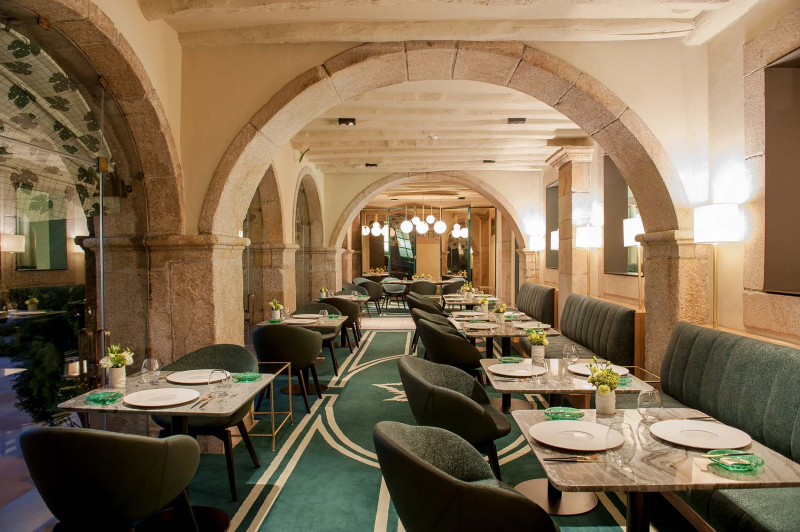
https://secretsfromportugal.com 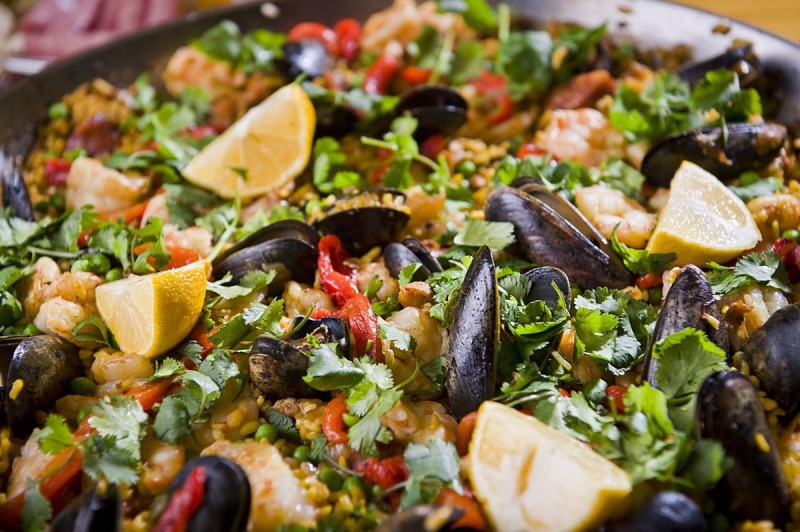
https://normalfixe.blogspot.com -
Portugal has its own set of customs and etiquette guidelines. These could appear ominous and even overdone to foreigners. However, they are accepted as part of daily life and social conventions by the Portuguese. Many of these might surprise you if you are moving to Portugal or visiting the nation. Although you are not required to conform to all of Portugal's social norms and etiquette laws, being aware of them will make your life easier.
PDA is generally discouraged in Portugal. Of course, this excludes holding hands, hugs, and short kisses. However, giving someone a passionate kiss is impolite and will draw a lot of looks. It's possible that individuals will approach you and criticize your actions.
Unfortunately, not everyone in a traditional society is allowed to engage in PDA in the same ways. Although Portugal has made progress in terms of LGBT rights, it is typical for homosexual couples to face harassment when holding hands.
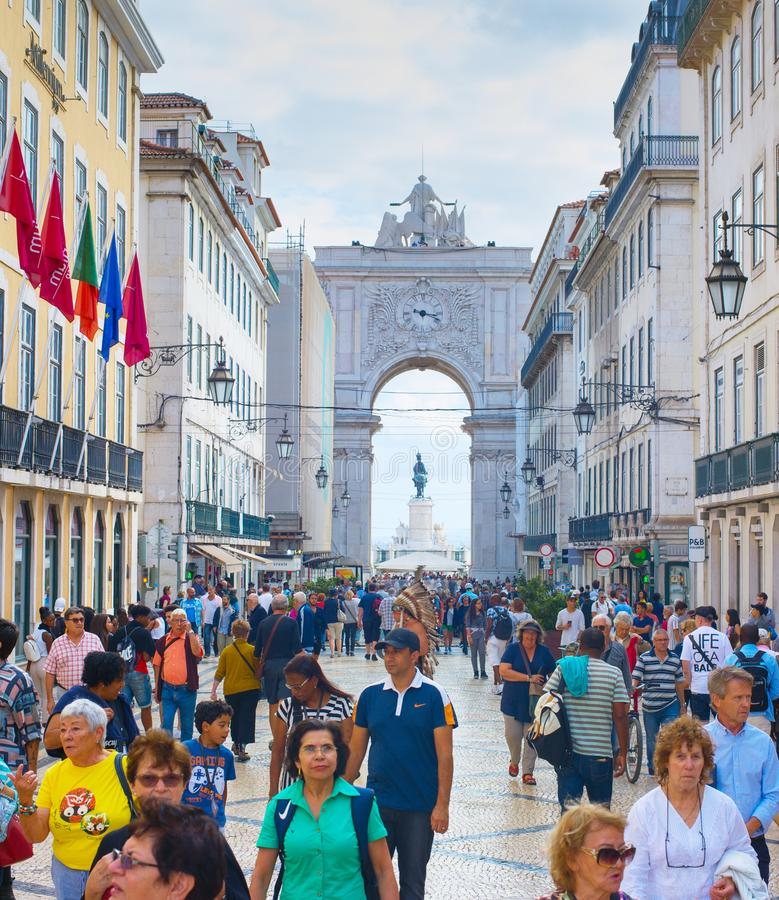
https://www.dreamstime.com 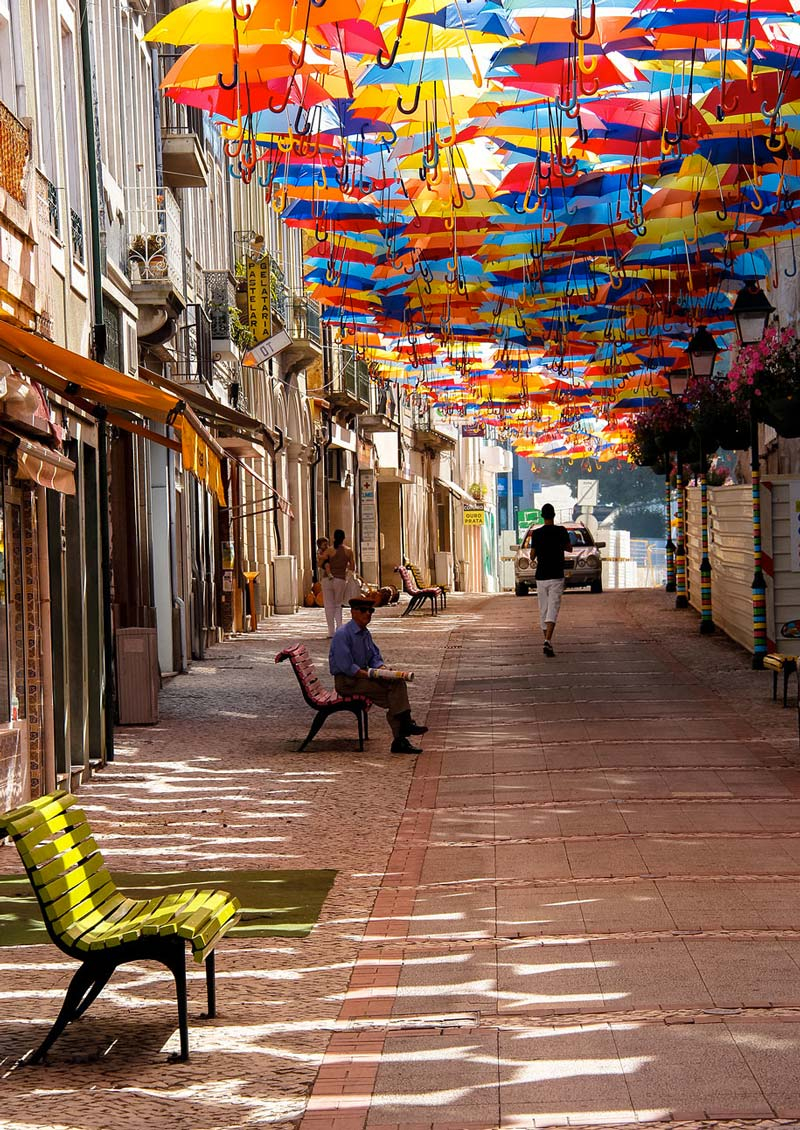
http://www.jebiga.com/ -
Portuguese culture was significantly affected by the Catholic Church's hegemony and traditional Christian principles. The manners used now in Portugal reflect this influence. Portuguese people pride themselves on tradition and conservatism. They resist significant change and innovation in both the family and the community. Family is the center of life in Portugal, and even in the twenty-first century, some customs and ways of living persist, particularly in rural areas.
The gestures used by the Portuguese are not frequent. Overly expressive hand gestures or body language leave a negative impression. The act of pointing with the finger is considered offensive in many cultures.
Generally speaking, the ideal distance to hold during chats is at arm's length.When speaking with close friends and family, the Portuguese have a tendency to touch a little bit, but these gestures are completely improper in professional or commercial settings. Public hugs, kissing, and ladies locking arms with males while crossing the street are all typical occurrences. Within certain parameters, public demonstrations of affection are normal.
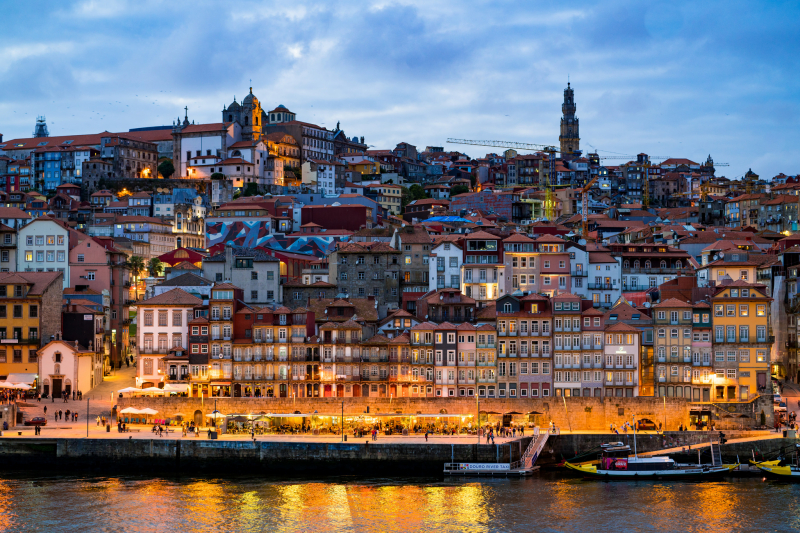
https://nanpalmero.com 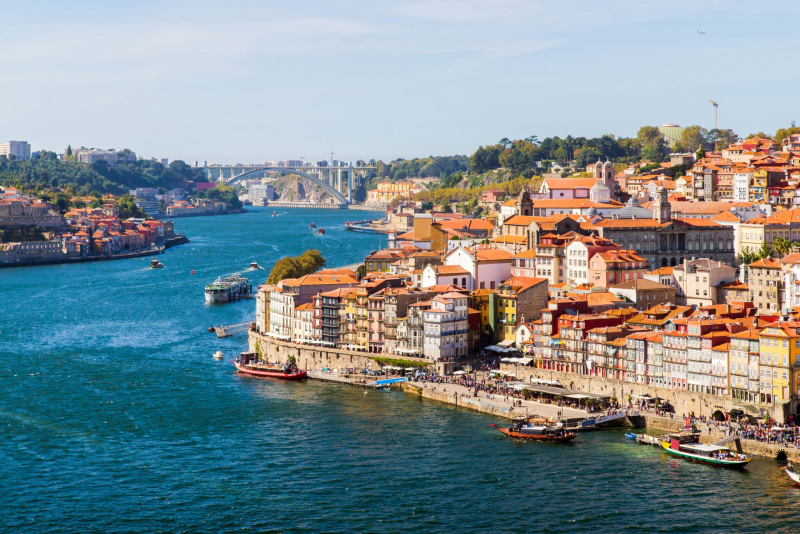
https://touristjourney.com -
Contrary to popular belief, Portuguese is not descended from Spanish. Many of the younger people know English, while many Portuguese people have a rudimentary understanding of Spanish. Although some fundamental Spanish terminology will be understood by Portuguese speakers, try to save the usage of it for dire situations only if you are a non-native speaker of the language.
If you use it, be ready to hear anything along the lines of "In Portugal, people speak Portuguese, not Spanish" or they may just say they don't understand you even if they do. They most likely won't say anything and will still assist you, but they won't enjoy it internally.
The historical rivalry between Spain and Portugal is to blame for this. The ideal way to get this kind of assistance is to converse in English or your original tongue while using hand signs, or at the very least, by initiating a conversation in Portuguese before switching to English.
Smoking is prohibited and punishable by a fine in public enclosed spaces such as cabs and public transportation, stores and malls, cafés and hotels, etc., unless those spaces have the corresponding blue sign posted. On Portugal's beaches, topless female sunbathers are common, and there are also a number of naturist beaches. On all of the beaches in the nation, thong bikinis are acceptable.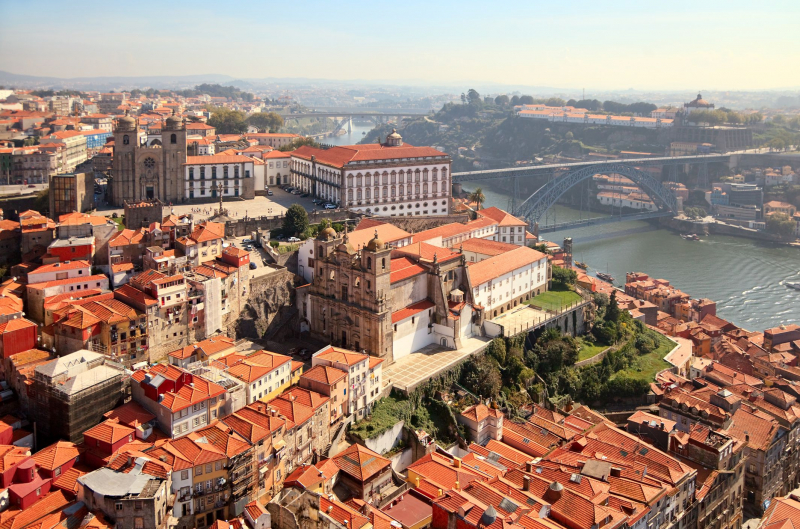
http://businesstravel.about.com/ 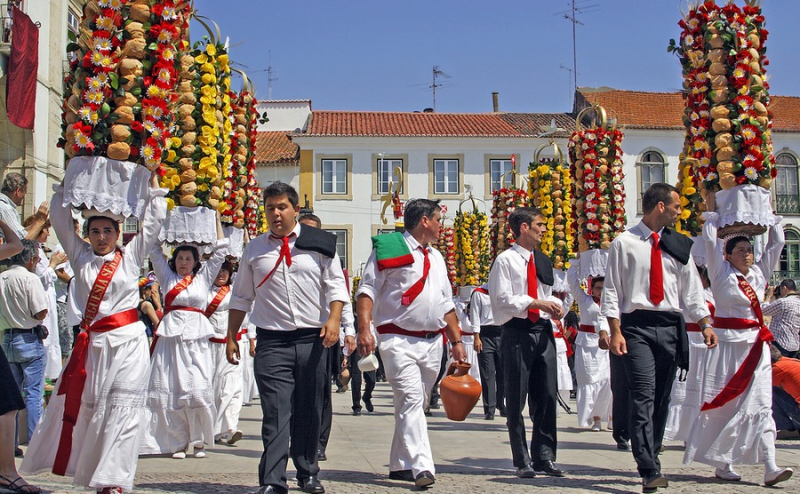
https://www.propertyguides.com/ -
Roman Catholicism is the main form of Christianity, which is the most common religion in Portugal. Although the Catholic Church in Portugal was once the official state religion, Portugal does not currently have an official religion. Although only around 19% of Portugal's population regularly attended Mass and received the sacraments in 2001, 81% of Portuguese people identify as Catholic, and a greater proportion of people want their children to be baptized, married in a church, and receive Last Rites.
Portugal is one of the most religious nations in Europe; the majority of Portuguese people firmly believe in God's existence and value religion in their daily lives. 40% of Portuguese Catholics pray daily, placing Portugal as the ninth most religious nation out of 34 in Europe, according to the Pew Research Center. Portugal is the ninth most religious nation in Europe out of 34, according to the Pew Research Center; 40% of Portuguese Catholics pray daily[6] and 36% place a high value on religion in their life.
Although the Portuguese First Republic (1910–1926) established a formal division between the two, which was reaffirmed in the constitution of 1976, Roman Catholic teachings continue to have a substantial impact on Portuguese society and culture. For a very long time, the Church had exclusive control over the educational and healthcare systems, and whenever a new building, bridge, or highway was constructed, the clergy frequently gave their blessing. Despite the legal separation of Church and State, the Catholic Church nonetheless enjoys several privileges.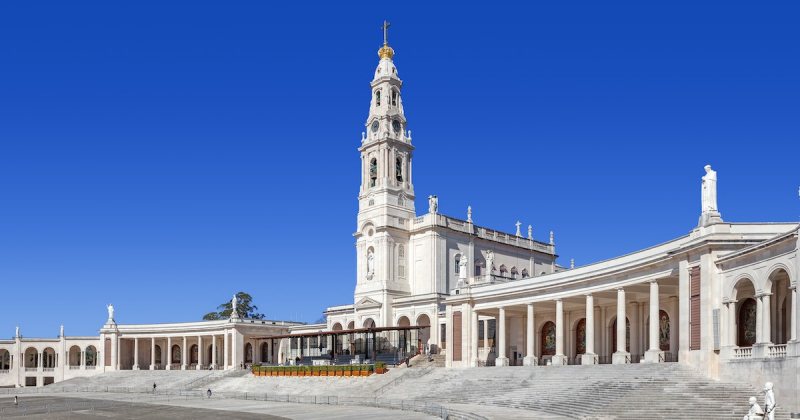
https://fantasiakakunews.blogspot.com/ 
https://sites.google.com -
Bullfighting continues to be an important part of Portuguese culture despite repeated calls from activist groups for its outlawry. Regardless of your personal views on bullfighting, it is undeniable that the "sport" continues to play a significant role in Portuguese society despite repeated calls for its prohibition from many activist groups. The Portuguese spectacular entails a variety of different disciplines, flashy costumes, and choreographed routines.
In some Portuguese cities, bullfighting still takes place. Contrary to Spanish law, it is forbidden to kill the bull during a bullfight in Portugal. It is incorrect to presume that all Portuguese people support or even remotely enjoy bullfights, nevertheless.
Many Portuguese people either don't care about bullfighting or find it offensive. Making generalizations or insisting that bullfighting is still a part of Portuguese culture today may potentially upset someone. In an open defiance of the law and law enforcement, the Municipality of Barrancos (a border town with Spain) killed the bull in the arena.

https://news.yahoo.com/ 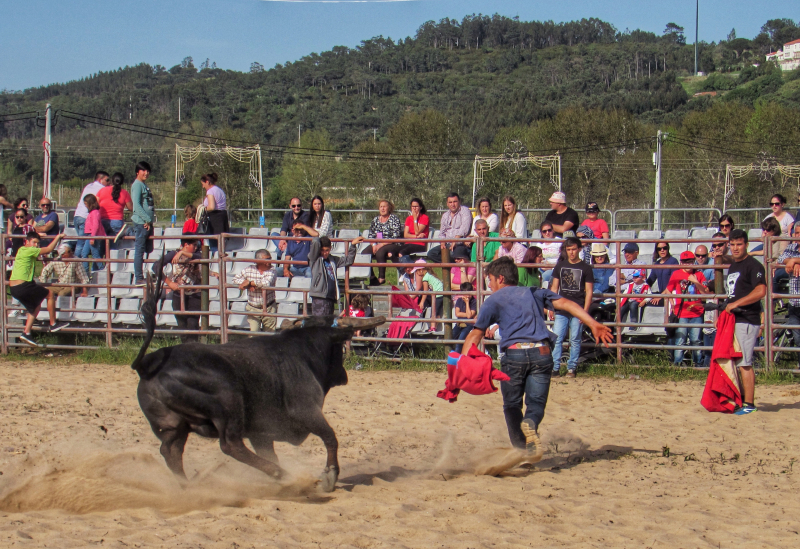
http://livology.com/ -
Appointments are required and should be scheduled one to two weeks beforehand. A few days before the meeting, confirm it again. Portuguese should be used for initial correspondence. It is not a good idea to try to plan meetings in August because most Portuguese people take their annual vacation. Additionally, it is preferable to avoid scheduling meetings the week between Christmas and New Year's. When you have a meeting, you should be on time.
Five minutes late is frequently seen as being on time. Being on time shows that you appreciate the person you are meeting. It's crucial to maintain a calm demeanor if you have to wait. Generally speaking, northerners are more reliable than southerners.
Before the business chat starts, there may be some time for getting to know each other. Agendas are not schedules; rather, they act as points of debate. Presentations should be well-planned, comprehensive, and supported by graphs and figures. Meetings do not result in decisions. When talking, keep your eyes open. Meetings could be cut short. Until your business partners do so, keep your jacket on.
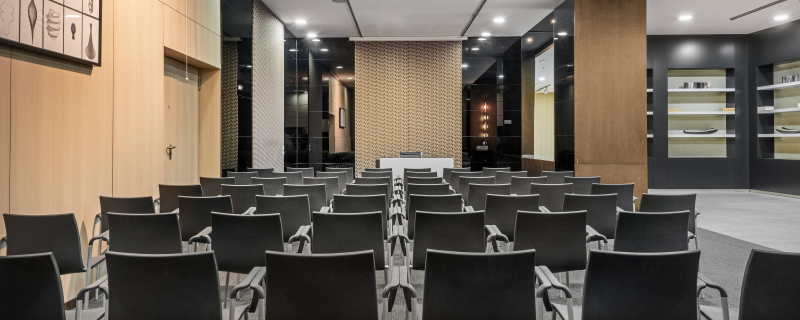
https://www.marriott.co.uk 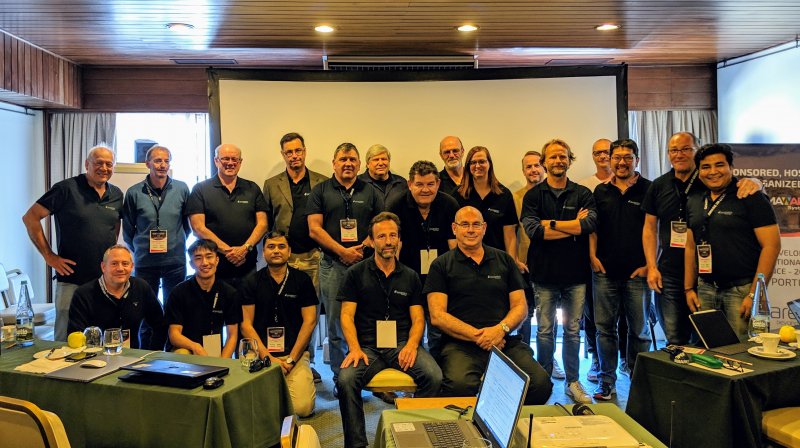
https://softserv.in/

































